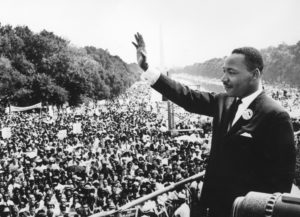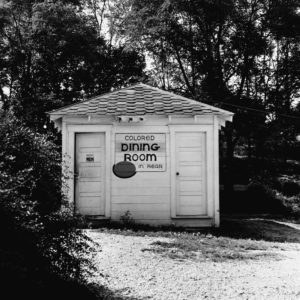 The decade of the 60’s is renowned above all for its protests, particularly of non-Caucasian races demanding an end to being treated as second-class citizens.
The decade of the 60’s is renowned above all for its protests, particularly of non-Caucasian races demanding an end to being treated as second-class citizens.
But what was going on in small-town America, the little burgs where many of us Boomer kids grew up?
Miami, Oklahoma was my hometown, as regular visitors of this site are well aware. And while we had a large percentage of American Indians, as did practically every other town in the Sooner State, I don’t recall seeing any black people while I was growing up.
Many communities that were located outside the deep south had sundown laws. The idea was that non-whites were welcomed during the day, but had best be out of town by nightfall.
Sadly, Miami joined the rest of Ottawa county in implementing a sundown policy. Black faces were rare all over the four-state area, comprised of the corners of Kansas, Missouri, and Arkansas that were close to the northeast corner of Oklahoma. In all likelihood, blacks were shunned pretty much everywhere outside of the larger communities like Tulsa and Joplin.

The effect was that many of us white kids were greatly confused by the civil rights struggles. There simply was no such issue in our quiet little hometown. We were completely unaware of the sinister reasons why not. In fact, I didn’t learn about the concept of sundown communities until I was out of high school.
Kids in the first or second grade usually reflect the racial views that they heard growing up. Thus, some of my classmates professed a strong dislike of blacks. That was genuinely baffling to me (and many more of my friends), seeing how we hadn’t ever had any in town to get to know.
When Martin Luther king was assassinated in 1968, I can remember, sadly, a few kids expressing glee. Not me. My mom reacted with nearly as much shock and sadness as she did to JFK’s death, and I knew that I had no business being happy about such an event.
By and large, even though the dreaded “n-word” was used pretty liberally, the crowd I hung out with was pretty colorblind. While being called the dreaded epithet was an insult, we still admired the Willie Mays’, the Bob Gibsons, and the Lou Brocks of the sports world.
 In 1968, as I have mentioned in a previous entry, we took a trip to Florida. We drove back through Mississippi, and it was there that I encountered my first (and only) white restroom at a gas station. There was a colored one as well, much dingier and smaller than the one that I was privileged to use.
In 1968, as I have mentioned in a previous entry, we took a trip to Florida. We drove back through Mississippi, and it was there that I encountered my first (and only) white restroom at a gas station. There was a colored one as well, much dingier and smaller than the one that I was privileged to use.
Indeed, it was obvious to this eight-year-old kid that the white bathroom was probably cleaned on a daily basis, the colored one once a week or so. While the situation was probably a source of great comfort to the station owner, it was very unsettling to me. I wanted to get out of town as soon as possible, before there was any trouble.
I finally had an idea of what all of the marches that were being shown on the nightly news were all about. And while I didn’t angrily respond to any kids who expressed racist views, I didn’t join in with them, either. In fact, I remember my own crowd being quite open to the idea of any “colored” kids joining us for play. However, Miami continued to have none.
I could have been raised to refer to members of other races in with less-than-complimentary terms. My mother was brought up by a Texas hill country lady who used racial epithets in normal conversation with absolutely no trace of self-consciousness, just like her own mom did. However, my own mother broke the chain, and any use of derogatory racial nicknames by myself would result in as hard a beating as if I had let loose with an obscenity.
Apparently, other neighborhood kids were raised the same way. Many of us would look around to see if anyone in authority was listening before insulting each other with the n-word.
So I’m happy to have grown up naive about what all of the fuss was about in racial equality. But I’m certainly not proud of the reason that my town had no blacks living in it.